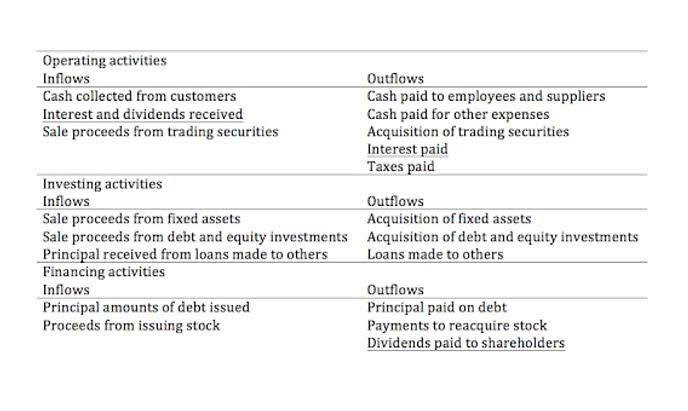
Moreover, the time and effort required for small business bookkeeping can be overwhelming for a business owner who needs to focus on sales, customer service, and other core aspects of their business. By full charge bookkeeper meaning taking over the complicated and time-consuming tasks of bookkeeping, a full charge bookkeeper allows the business owner to focus on core areas of their business. Simply put, the roles and responsibilities of a full charge bookkeeper are a combination of the duties of a regular bookkeeper and an accountant or controller.
Transitioning from Traditional Bookkeeping

As conduits of financial information, these adept professionals serve as a bridge between raw data and informed decisions. Therefore, as your business grows and fixed assets its finances get more complex, switching to a full-charge bookkeeper should come naturally. That’s why this is the ideal option for mid to large-size growing companies that can afford to take this step. Furthermore, this is a role that many businesses are looking to fill, so if you’re ready for a challenge and want to impact your career, this may be the right job for you. The bottom line is that if you want to become a successful full charge bookkeeper, you need to be willing to put in the time. Time and effort applied to any skillset will begin to flourish into a self-sustainable ability.

Required Qualifications and Education
Most of the full-charge bookkeepers started as regular bookkeepers, gained experience, went through advanced accounting software training, and worked their way up the ladder. Since this role comes with higher responsibilities, it requires more experience in the field. Therefore, a full-charge bookkeeper can handle many different things concerning finances. It is in their job description to perform tasks that fall between basic bookkeeping and accounting. It is a two-in-one role that can be ideal for the needs of certain mid-size businesses and even larger ones, which have relatively simple accounting transactions and don’t need a controller.
Mastering the Role of a Full-Charge Bookkeeper: Your Ultimate Guide to Full Charge Bookkeeping Success
- They also provide features like employee self-service portals, allowing staff to access their pay stubs and tax forms independently, freeing up bookkeepers to focus on more strategic tasks.
- In addition, the person has to have expert knowledge of bookkeeping and accounting systems, a good eye for minute details, and excellent skills in project management.
- Leveraging software and automation can help minimize time spent on repetitive, time-consuming tasks.
- This process requires bookkeepers to be adept at identifying patterns and potential risks, allowing for proactive adjustments to financial strategies.
- For example, full charge bookkeepers in major metropolitan areas or working for larger corporations may command higher salaries compared to those in smaller cities or companies.
- A full charge bookkeeper’s pay rate can also go higher for hourly freelance work versus guaranteed weekly or monthly salaries.
An in-house bookkeeper gives you continuity and knows your business’s finances well. Outsourcing bookkeeping services, on the other hand, offers flexibility and can save you money. As a full-charge bookkeeper, you play a big role in keeping your company’s finances healthy.

Are there specific industries or types of businesses that benefit most from this role?
- Additionally, they are responsible for remitting payroll taxes to the appropriate authorities, filing necessary reports, and staying informed about any changes in payroll tax laws or regulations.
- It is a comprehensive role that includes the tasks of posting journal entries, managing payroll and bank reconciliations, and producing financial statements.
- Download our free checklist to help you partner with the right provider.
- To get one, you’ll have to have at least two years of professional experience in the field and pass the exam.
- This will show potential employers that you’re serious about your career and have the skills they’re looking for.
- Now, let’s take a look at full charge bookkeeper vs. bookkeeper job descriptions and compare them.
If you’ll notice, a full service bookkeeper takes “charge”of all the duties of a bookkeeper. Where they differ is the addition of managerial, tax, and accounting related responsibilities. Also, unlike accountants, full charge bookkeepers generally do not provide tax planning advice or act as financial advisors. A full charge bookkeeper is solely in charge of all accounting done within a small or medium-sized business. To help you determine if hiring a full charge bookkeeper is in your business’s best interest, you need to know what this role entails and how it is different from other bookkeeping work. When picking between in-house and outsourced bookkeeping, think about what your business needs and has.
- Full-charge bookkeepers ensure compliance with financial regulations, tax legal guidelines, and reporting requirements.
- This task involves overseeing the payment of invoices and the collection of outstanding debts, which requires careful coordination and communication with vendors and clients.
- These tools often include features that help identify potential deductions or tax credits, providing financial benefits to the organization.
- However, a good full service bookkeeper will dedicate themselves to continuing their learning.
This will help you to better understand the day-to-day responsibilities of the role and give you a leg up when it comes time to interview for the job. Finally, make sure to brush up on your GAAP knowledge – as this will be critical in ensuring that your company’s financial records are accurate and compliant. Embarking on the transition requires a readiness to handle a wider array of bookkeeping and accounting responsibilities. This includes managing everything from day-to-day Certified Bookkeeper financial transactions to preparing detailed financial statements and overseeing tax preparations. In financial management, full-charge bookkeeping is crucial in maintaining accurate and up-to-date financial records for businesses. This comprehensive approach encompasses various responsibilities that go beyond traditional bookkeeping tasks.

Maintaining Compliance with Laws and Regulations
- A full charge bookkeeper handles typical bookkeeping responsibilities (e.g., data entry), plus additional accounting duties.
- EcomBalance handles your bookkeeping and sends you a Profit and Loss Statement, Balance Sheet, and Cash Flow Statement by the 15th of each month.
- Finally, make sure to brush up on your GAAP knowledge – as this will be critical in ensuring that your company’s financial records are accurate and compliant.
- They must be able to spot mistakes and inconsistencies or errors that might result in damaging audits and investigations by regulatory authorities.
- This means that you’ll need to have solid skills and stand out from the crowd if you want to succeed.
- The general ledger is the central repository of an organization’s financial data.
As the demand for comprehensive financial management services continues to grow, the job market for full charge bookkeepers remains robust. According to Salary.com, the median salary for a full charge bookkeeper in the United States is around $43,890 per year. In conclusion, being a full charge bookkeeper entails a wide range of responsibilities, including accurate record keeping, financial statement preparation, payroll management, and regulatory compliance. In today’s digital age, full charge bookkeepers must be proficient in using various financial software and accounting systems. These tools help streamline the bookkeeping process, automate tasks, and improve overall efficiency.
What Are the Salary Expectations for Full-Charge Bookkeepers?
They are responsible for a company’s entire financial bookkeeping cycle. They are often engaged by growing businesses that cannot handle all the financial tasks on their own. Many businesses find value in outsourcing bookkeeping services, particularly when it comes to employing full charge bookkeepers.
